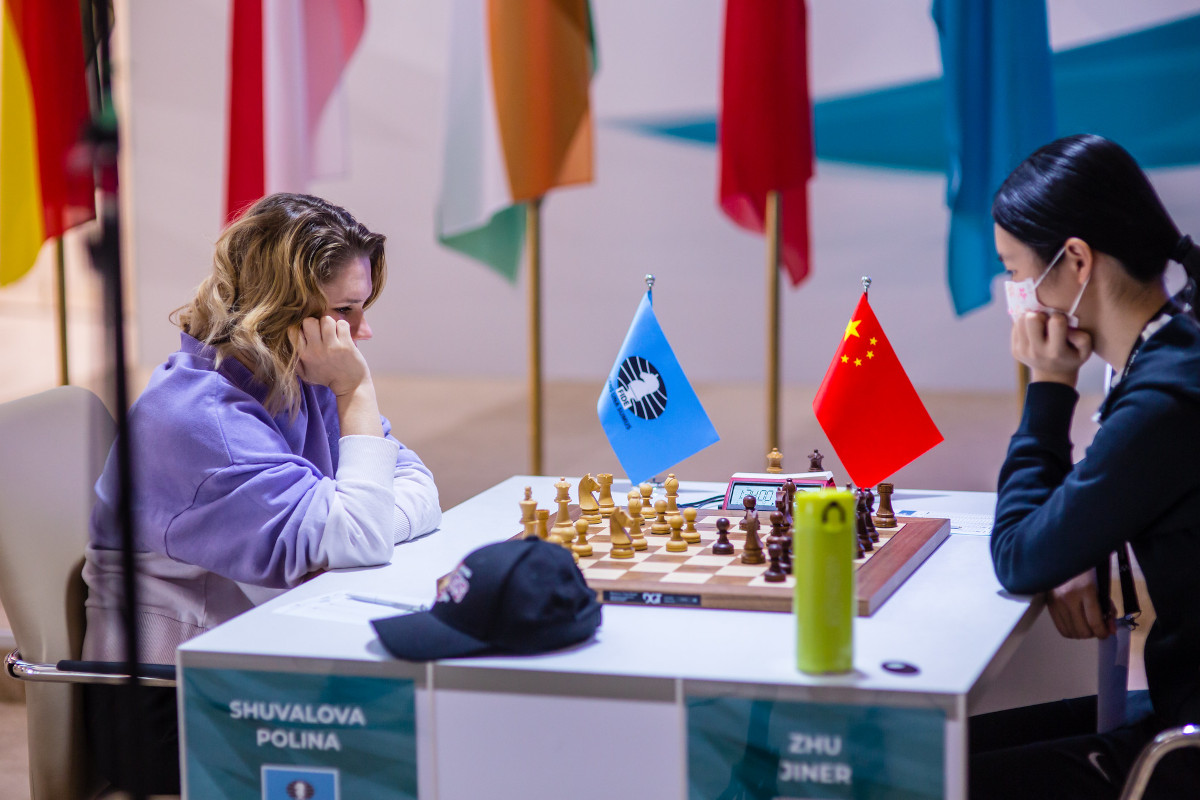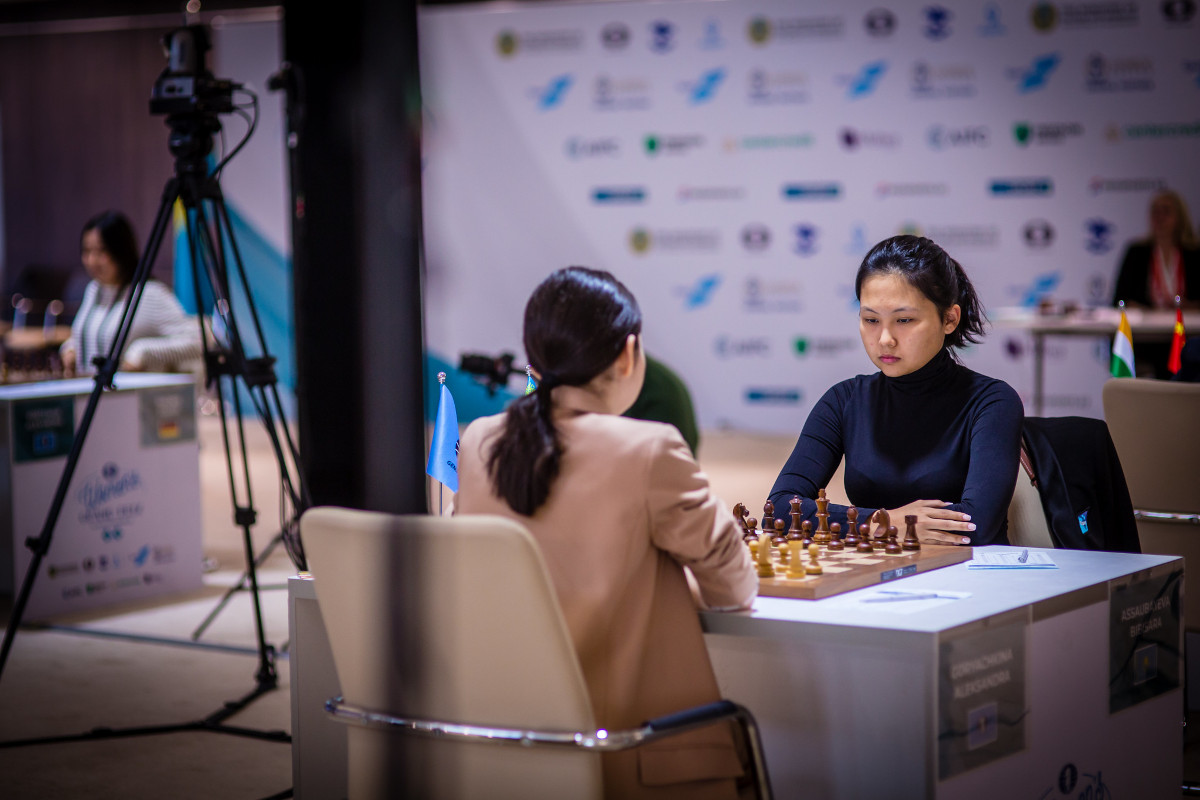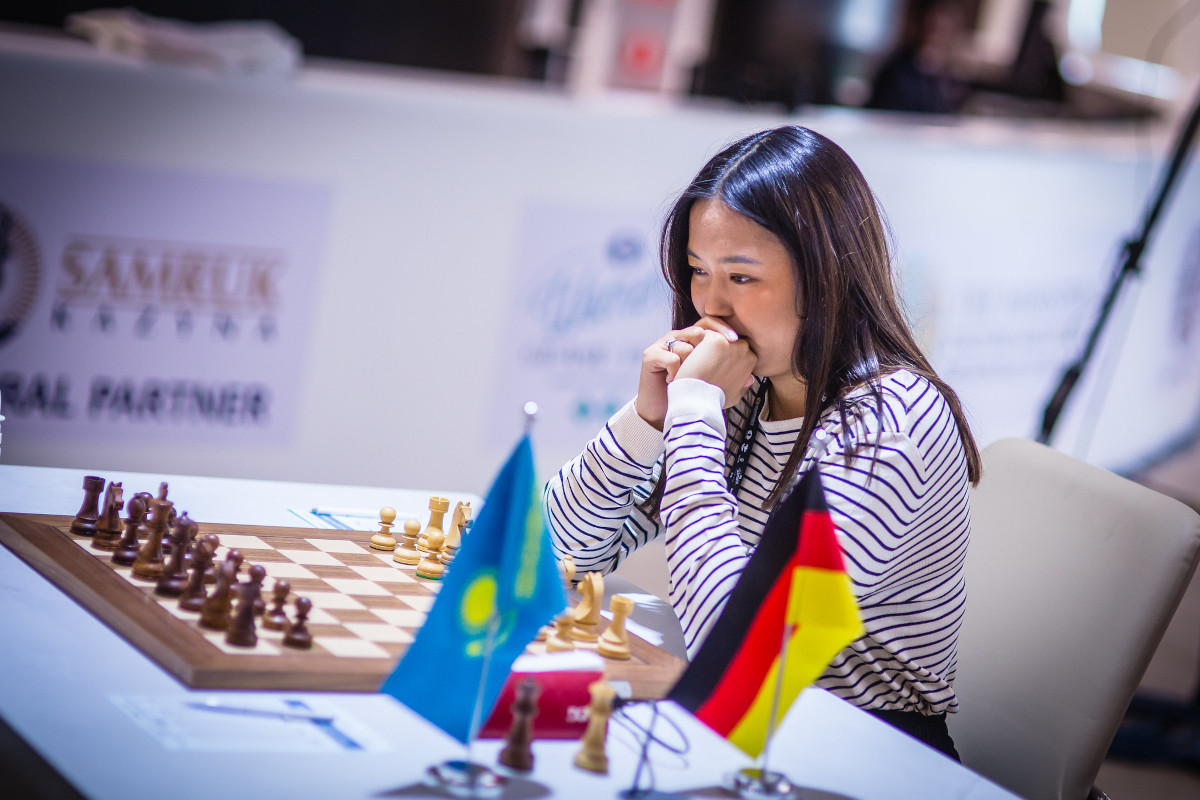Zhu begins to leave her mark
At 19, Zhu Jiner is the most promising junior player hailing from China. In fact, the young woman grandmaster is the highest-rated U-20 woman player in the world, as she stands a bit over 20 rating points ahead of Bibisara Assaubayeva, who is also participating at the tournament in Astana. With wins over Dinara Wagner and Polina Shuvalova, Zhu is now sharing the lead with top seed Aleksandra Goryachkina.
 The Jobava London System is a minor form of the London System. White tries to play Lf4 quickly followed by Nc3.
The Jobava London System is a minor form of the London System. White tries to play Lf4 quickly followed by Nc3.Since we last reported after round 2, five decisive results were seen on Tuesday and Wednesday. Wagner and Kateryna Lagno scored their first wins in Astana, while Alexandra Kosteniuk beat Tan Zhongyi and immediately returned to a 50% score by losing to Wagner.
The twelve participants will only get one rest day in the event, after round 6. Naturally, fatigue will gradually play a bigger role for the contenders. In addition, the fact that two spots in the 2023 Women’s Candidates Tournament are up for grabs in the series is likely to add some tension to the proceedings.

Polina Shuvalova facing Zhu Jiner | Photo: Anna Shtourman
Zhu’s win over Shuvalova in round 4 was not without ups and downs. In a complex position with all major pieces still on the board, Zhu gave her opponent a chance to gain a strong initiative.
Black’s priority here is to prevent White from creating a long-lasting bind with f5-f6. However, playing 34...f6 is never an easy decision in these situations — engines do not fear 35.e6, but for a human, it is tough to simply accept to give the opponent a far-advanced passer. Alternatively, 34...Qxe4+ 35.Rxe4 g5 was also a good defensive recourse.
Instead of either of these lines, though, Zhu opted for the less drastic 34...Re8, which is a mistake. Luckily for the Chinese, after 35.Qxd5 Rxd5, it was Shuvalova who faltered by defending her e-pawn with 36.f4 instead of going for the immediate 36.f6+. A case of cautious play failing players on both sides of the board.
The position was now balanced. As it turned out, in the ensuing rook endgame, it was Shuvalova who made the last mistake.
As the endgame tablebases show, this position is drawn despite Black having an extra pawn — White’s active king and rook are enough to keep the balance. Moving the king to e5, f5 or g5 is the way to keep the defensive effort going, while Shuvalova’s 62.Rg4+ is actually losing.
What the Russian probably calculated was that after 62...Kh7, she can simply return with 63.Ra4 and White cannot grab the pawn on h6 due to the mate from h4.
However, Zhu found the winning 62...Kh8, and after 63.Ra4 Black can ‘waste a tempo’ with 63...Kh7. The sequence simply allowed Zhu to improve her king by transferring it to g8 to h7, with White to move — now after 64.Ra1 Black gets to push his pawn with 64...a4, and good technique leads to a win by force.
Perseverance worked wonders for Zhu here, as she was rewarded with a full point five moves later. Waiting for her opponent to err — while defending a position that required some precision — was the correct strategy for the Chinese rising star.
 In over 4 hours in front of the camera, Karsten Müller presents to you sensations from the world of endgames - partly reaching far beyond standard techniques and rules of thumb - and rounds off with some cases of with own examples.
In over 4 hours in front of the camera, Karsten Müller presents to you sensations from the world of endgames - partly reaching far beyond standard techniques and rules of thumb - and rounds off with some cases of with own examples.
Bibisara Assaubayeva (18) drew top seed and co-leader Aleksandra Goryachkina with the black pieces | Photo: Anna Shtourman
Standings after round 4
All games
Links































